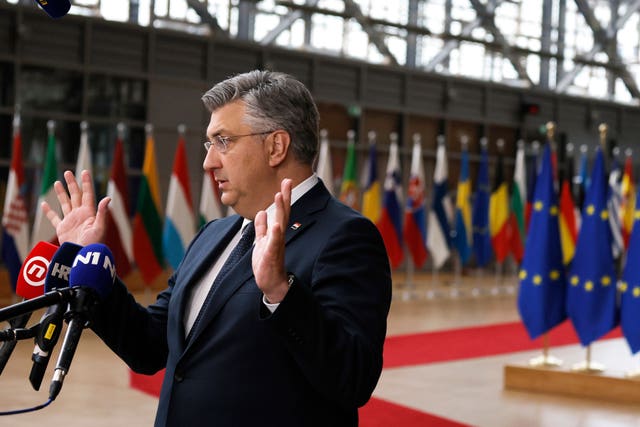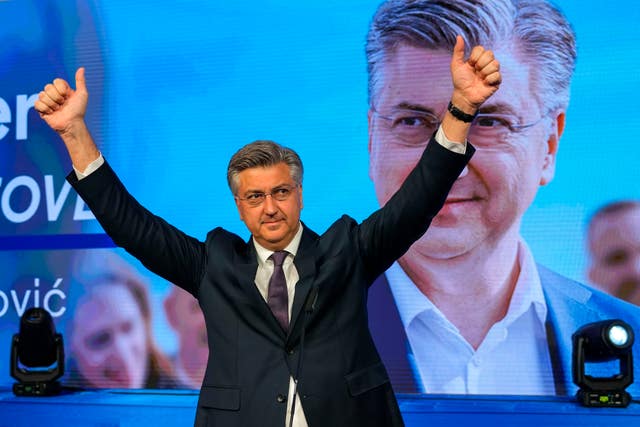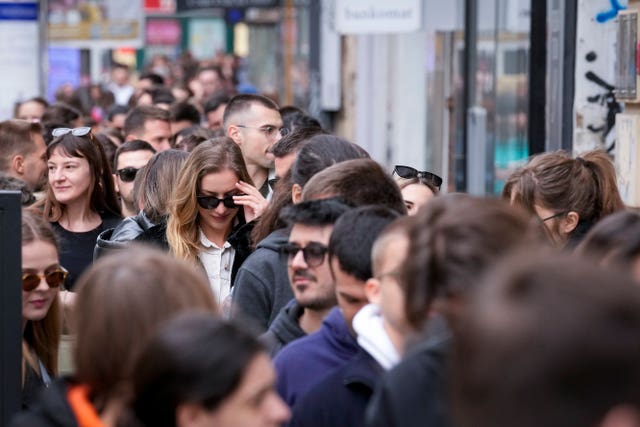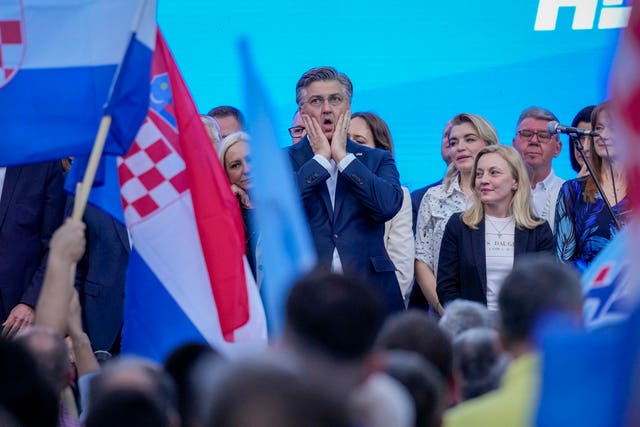Croatia’s conservatives believe majority is close despite inconclusive vote
The Croatian Democratic Union party, or HDZ, won 61 seats in the 151-seat parliament.

Croatia’s ruling conservatives said on Thursday that talks have already started about the formation of a new governing majority the day after a highly contested parliamentary election.
Prime Minister Andrej Plenkovic, who is the leader of the Croatian Democratic Union party, or HDZ, said that the party has contacted some of the potential future partners and more talks will take place on Thursday.
Preliminary results of the vote on Wednesday showed that Mr Plenkovic’s HDZ won 61 seats in the 151-seat parliament, which means the party has to form a coalition government to stay in power.

Mr Plenkovic offered no details about any potential future alliance. If he remains prime minister, that would mark his third consecutive term at the post.
In a statement on Facebook, he wrote: “Everything is going well. You will soon know with whom we will form the new majority.”
Mr Milanovic said in his own message on Facebook that two-thirds of the votes went to parties that are opposed to corruption, crime and inequality. Only someone who can put together a 76-seat majority in parliament can lead the government, he said.

Mr Plenkovic has faced accusations of corruption as Croatia, a European Union and Nato member, struggles with the highest inflation rate in the eurozone, a labour shortage and a surge in migration.
The Adriatic Sea country’s future domestic policies weren’t the only things at stake in Wednesday’s election but also the EU’s unity as it grapples with the instability from Russia’s full-scale invasion of Ukraine.
If the HDZ stays in power as expected, Croatia will continue on a pro-Western course in supporting Ukraine in its fight against Russia.

The clash between Croatia’s main political leaders had fuelled political tensions before Wednesday’s vote that was also seen as a test of popularity for the conservatives before the European Parliament election in June.
Apart from the three main groups, the pro-religious Most, or Bridge, party won 11 seats while the green-leftist Mozemo, or We Can, group won 11.
Mozemo has called for a minority government that would tackle reported widespread corruption in the country.

The HDZ has largely held office since Croatia gained independence. The Balkan nation became an EU member in 2013 and joined Europe’s passport-free travel area and the eurozone last year.
After Mr Milanovic scheduled the election and announced his surprise bid for prime minister, he began campaigning on behalf of the SDP.
But Croatia’s constitutional court judges stepped in, saying the move was unconstitutional and he must resign to run, a ruling Mr Milanovic ignored.





